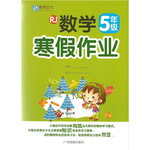题目内容
--What ________ your name?
--My name is Lilei.
- A.are
- B.am
- C.is
- D.be
思路分析:这是想知道人家的名字的问句,What's your name?是固定句型.what is=what's.

 黎明文化寒假作业系列答案
黎明文化寒假作业系列答案You have probably heard it before, most likely from your English teacher. If you want to become a good writer, read good writing. Unluckily, you may not have understood what did good to you and even what you were supposed to get from that experience.
As you start reading a book, poem, or story, do so with no thought at all and the experience will improve your writing. Just read for pleasure to begin with, or to learn. As you progress through the work, think about whether it is “easy” reading or not. Do you become so interested in the subject and flow of the writing that you completely forget the person who wrote it, or does the composition sometimes call too much attention to itself through words and phrases that seem out of place or unexpected? The second situation is a chance to learn from the writer’s mistakes. In fact, the reader should not have to worry about how a writer does “his thing” ... he should be able to just enjoy and learn. Every time a word strikes you as poorly chosen, stop to consider why it has this effect. Also, do not spend a lot of time analyzing (分析) the passage but put more efforts in enjoying it from the whole.
Another thing I do, particularly with nonfiction (非小说) books, is to select a part to read as if it is a completely separate work. Once again, read as a common reader rather than a critic (批评家). For learning how words and phrases work together on the most basic level, however, nothing is more suitable than devoting yourself to reading poems. A poet is often trying to put a book’s worth of meaning and feelings into lines, and every side of the work shows a very close attention to craft (工艺).
As you can see, there is no simple way of reading to improve your writing. The key is not to make it boring. Select writers you admire or like most, and enjoy their works as anyone else would. As long as you are reading, you are improving yourself as a writer.
|
Improving Your Writing by Reading |
|
|
Facts |
Ø Reading good writing 1. you become a good writer. Ø You don’t understand the 2. of reading and what to get from reading. |
|
Ways |
Ø Read not to learn but for 3. . 1) Develop a great 4. in the subject and flow of the writing. 2) Learn from the writer’s 5. if possible. 3) 6. shouldn’t be spent in analyzing the passage but in enjoying the passage from the whole. |
|
Ø Read as a common consumer rather than a critic. Ø 7. yourself to reading poems and enjoy the lines. |
|
|
Conclusions |
Ø Don’t make yourself 8. with reading. Ø Select your 9. writers and enjoy their works. Ø You are sure to make 10. during reading. |
请阅读下列短文。根据短文内容从下面方框的七个选项中,选择五个适当的句子还原到原文中,使短文意思通顺、结构完整,并将其答案填写到答题卷的相应位置。(每小题2分)
Sixteen year ago a boy gave me an important gift. 1.
It was the early autumn of my first year at a middle school, and my old school was far away. As a result, no one knew who I was. I was very lonely, and afraid to make friends with anyone.
Every time I heard the other students talking and laughing, I felt my heart break. 2.
Then one day, my classmates talked happily with their friends, but I sat at my desk unhappily as usual. At that moment, a boy entered the classroom. 3. He passed me and then turned back. He looked at me, with a smile.
Suddenly, I felt the touch (触动) of something bright and friendly. It made me feel happy, lively and warm. 4. I started to talk with other students and made friends. Day by day, I became closer to everyone in my class. The boy with the lucky smile has become my best friend now.
One day I asked him why he smiled, but he couldn’t remember smiling at me!
It doesn’t matter because all the dark days have gone. 5. If you think it lonely, you might always be alone. So smile at world and it will smile back.
|
A. It’s his friendship. B. I believe that the world is what you think it is. C. I didn’t know who he was. D. That smile changed my life. E. I couldn’t talk with anyone about my problems. F. It was a smile. G. He helped me to talk with other friends. |